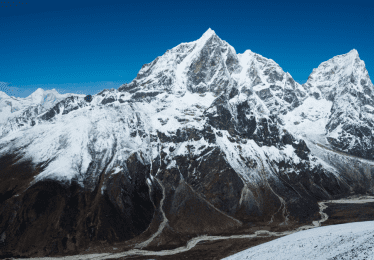Actively Addressing Development Issues in HKPL

An?iceberg?in?the?tranboundary?area?of?the?HKPL.(PHOTO:?ICIMOD)
By?Staff?Reporters
The Hindu Kush Karakoram Pamir Landscape (HKPL), also known as Bam-e-Dunya, Persian for the roof of the world, represents a fragile ecosystem and faces challenges in economic and social development, resulting in more transboundary cooperation needed to balance development and conservation in this area.
HKPL covers the arid high-altitude regions of the Hindu Kush Himalaya, and is shared by Afghanistan, China, Pakistan, and Tajikistan.
Home to diverse biological resources and rich cultural traditions, it is the gateway to the China-Pakistan Economic Corridor, one of the projects under the Belt and Road Initiative (BRI).
As part of the Bam-e-Dunya network, China has been active in promoting international sci-tech cooperation in the region.
Professor Long Ruijun, director of the International Centre for Tibetan Plateau Ecosystem Management of Lanzhou University in northwest China's Gansu province, is one of those dedicated to introducing new technologies to Pakistan and other countries along the BRI.
At a media workshop on reporting environmental issues in HKPL on September 20, Long said that his team has been working closely with their counterparts to bring energy and agricultural solutions to Pakistan and Nepal.
Due to the lack of electricity in Pakistan, water from many mountainous rivers cannot be pumped to irrigation areas. Long thus introduced the solar pump to Pakistan, which was well received by locals. He also sent oats and alfalfa seeds to the Pakistan Agricultural Research Council for local people to plant more productive crops.
Apart from facilitating people in the HKPL to develop their economy, guests at the workshop also emphasized the importance of balancing economic development and ecological protection.
More human activity in the region has brought problems such as loss of biodiversity, climate change, and rapid land use change, so transboundary cooperation needs to be strengthened for the development of a healthy and resilient HKPL.







